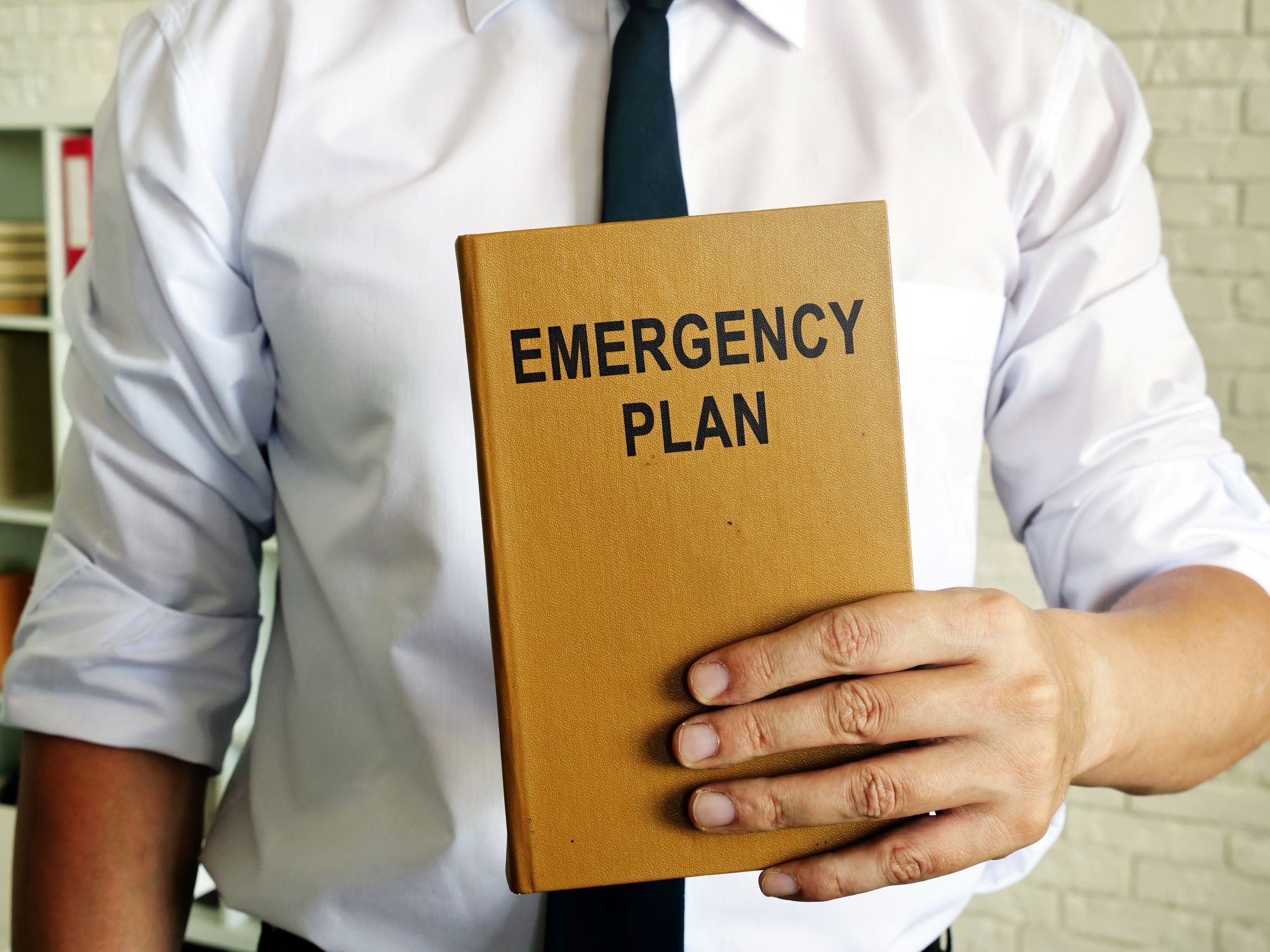Are you prepared for an emergency if you work from home? Be ready with an emergency kit and a plan for evacuation and emergency communication.

Photo credit: istock.com/designer491
As I write this post, much of B.C. is experiencing the effects from what some are calling an “atmospheric river.” With unprecedented amounts of rain, we’re seeing mudslides closing roads and many areas evacuated due to floods. We also have power outages affecting people in different regions.
Have an emergency kit
As always, BC Hydro reminds us to be prepared for the loss of power. In Prepare your home for an outage, BC Hydro advises having an emergency kit that includes a flashlight, battery-operated radio, and enough food and water to last for 72 hours. Tips include:
- Make your kit easy to carry by using a backpack, duffel bag, or suitcase with wheels.
- Store it in an easy-to-reach, accessible place, such as your hall closet.
- Ensure everyone in your home knows where your emergency kit is stored.
- Check your emergency kit once a year to make sure it still fits the needs of your household and replace any items that you have used or that have expired.
Make plans for evacuation and emergency communication
In addition to supplies, you’ll also need an emergency plan. The B.C. Government has a fill-in-the-blanks document to help you make your emergency plan.
A WorkSafeBC news release reminds us that “employers must have plans to protect workers from impacts related to severe weather, natural disaster, and other emergencies.”
Working from home: A guide to keeping your workers healthy and safe includes key components of a health and safety policy for working from home. Some examples are:
- Include protocols for evacuating to a safe location if needed, and how to contact the employer in case of emergency.
- Outline safe work practices and how to report any work-related incidents or injuries.
- Cover communication protocols and procedures for check-ins if a worker is working alone or in isolation.
Have you connected with your employer about emergency procedures and how you would communicate to let them know you’re okay in an emergency? Are there instructions for what to do with any work equipment you have at home?
Please share your tips for emergency preparedness in the comments below.


